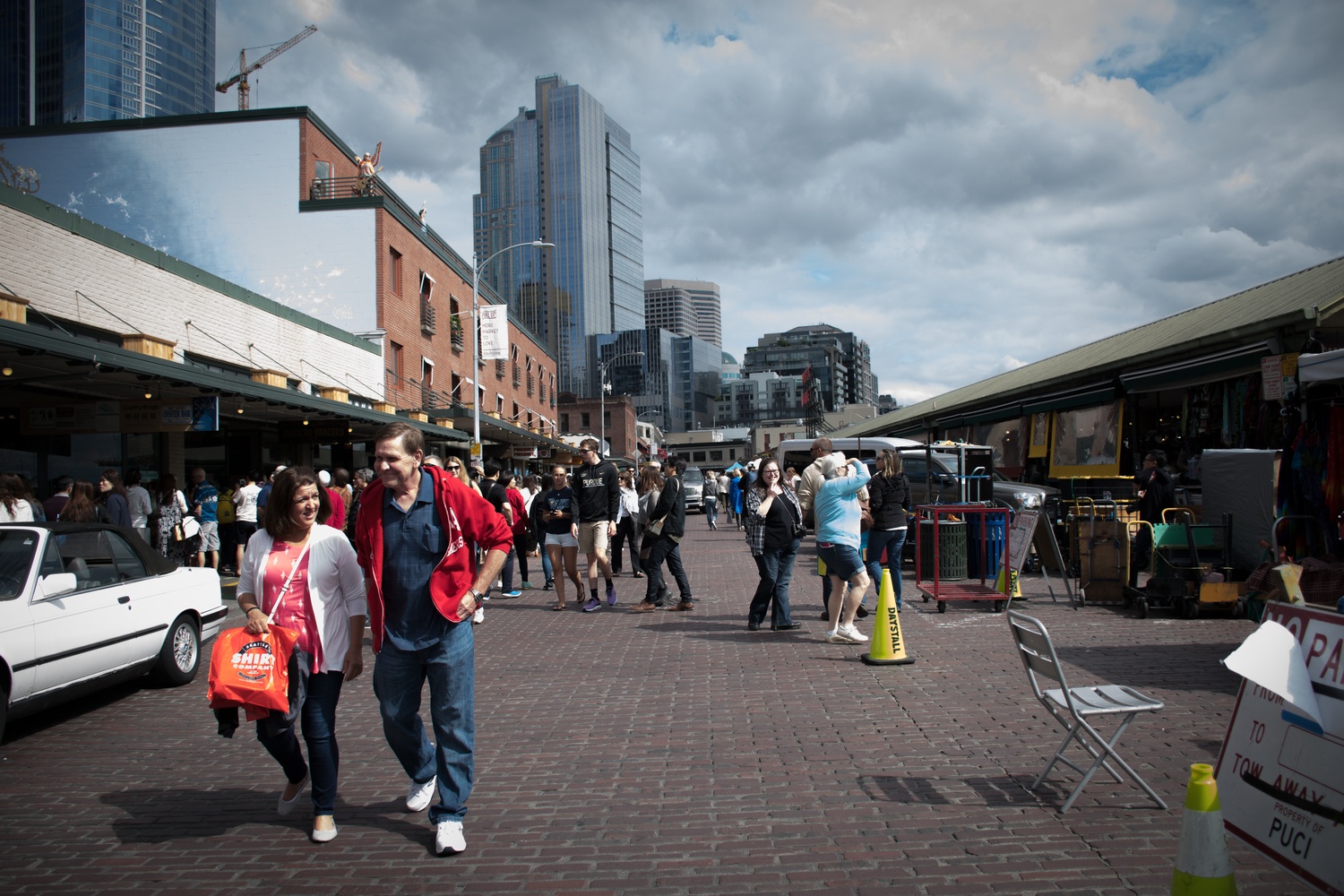
News
Pro-Palestine Encampment Represents First Major Test for Harvard President Alan Garber

News
Israeli PM Benjamin Netanyahu Condemns Antisemitism at U.S. Colleges Amid Encampment at Harvard

News
‘A Joke’: Nikole Hannah-Jones Says Harvard Should Spend More on Legacy of Slavery Initiative

News
Massachusetts ACLU Demands Harvard Reinstate PSC in Letter

News
LIVE UPDATES: Pro-Palestine Protesters Begin Encampment in Harvard Yard
Summer Postcard: Sleeping Is Giving In

SEATTLE, Wash.—It’s 7 a.m. and I’ve once again beaten my alarm clock at its own game. I roll out of bed to shower, dress, and grab some breakfast before walking down the street to catch a bus to Bellevue. I can make a Starbucks visit on my walk from the transit center and still be in work comfortably before 9.
There’s really nothing remarkable about this morning routine, unless you know me personally. I spent most of the last three years waking up with barely enough time to make it to 10 a.m. sections. During the school year, a shower in the morning—rather than before bed—or a leisurely walk from the Quad, are small luxuries. If I can grab coffee from the dining hall as I run for the Shuttle I count myself lucky. I regularly fall into bed after a 1 p.m. class because my brain feels foggy and my legs are like jelly, and I can’t force myself to be awake any longer. Rinse and repeat. Plenty of students at Harvard get relatively little sleep, but few feel this terrible even when they get a regular eight hours.
Five years ago, I was diagnosed with papillary thyroid cancer. At eighteen, I held onto the straight-forward treatment plan and excellent prognosis to offset the shock of a cancer diagnosis. I told people I was going to be fine, “only” having to have my thyroid removed and take some pills every morning thereafter. The six-inch scar on my neck was promised to fade, and within a year I’d be effectively cured. In the grand scheme of things, I was lucky.
I minimized the reality of my condition so much I became complacent about it, forgetting that I needed to be more mindful of my energy levels than the average college student. I spent most of my junior year of college over-worked, unknowingly under-medicated, feeling lousy, and blaming myself for it all. No matter how easy the words “chronic illness” were to say, part of me never really believed they applied to me. I was unkind to myself, forcing myself to keep up with my classmates’ often crazy work schedules. I internalized the idea that sincerely acknowledging the difficulties posed by my illness meant giving in and accepting that I was permanently limited by it.
I worried about this exhaustion persisting into the summer, dreading a long commute across the Puget Sound and fearing that I’d underperform at work. It took getting out of the Harvard bubble—both physically and mentally—to teach me that I’m not doomed to be tired forever. Putting in a full day of work during “real adult human work hours” has trained me to sleep longer and earlier than I have since starting college. I haven’t felt this genuinely well in years, and it hasn’t come at the expense of my productivity. Rather than being a permanent consequence of my illness, this perpetual exhaustion at college can be as ephemeral as my time as an undergraduate if I want it to be.
At a time when I’m reckoning with the impending reality of graduating in under a year, unsure how I’m ever going to be okay with leaving Harvard behind and being a “real adult”, this summer has already given me something to look forward to about graduating: sleep.
Megan M. Ross ’18, a Crimson Multimedia Editor-at-Large, is a computer science concentrator in Pforzheimer House.
Want to keep up with breaking news? Subscribe to our email newsletter.
